Super Bowl Security Has Turned Minneapolis Into A Military Police State
4
February, 2018
The
Department of Homeland Security has designated Super
Bowl LII a National Special Security Event (an event deemed a
potential target for terrorism or criminal activity) with
a SEAR-I classification. The
National Guard, federal agencies, and law enforcement from across the
country have been patrolling Minneapolis and Saint Paul since January 26h.
While
security around the Super Bowl has been openly militarized every year
since the 9/11 attacks, only three
have been labeled National
Special Security Events, including this
year’s. Since 2001, every city except Houston (which had over 5,000
police officers) has called in the National Guard to provide
additional security on the streets.
SEAR-I is an event “of such magnitude and significant national and/or international importance that may require the full support of the United States Government (USG). The scale and scope of these events requires significant coordination among federal, state, and local authorities and warrants pre-deployment of federal assets as well as consultation, technical advice, and support to specific functional areas in which the state and local agencies may lack expertise or key resources.”
In
its 52-year history, there has never been an attack at the site of
the Super Bowl, which raises questions about the need for SEAR-I
classification.
More
than a dozen streets have been shut down at three major points within
downtown Minneapolis: the Minneapolis Convention Center (NFL
Super Bowl Experience),
Nicollet Mall (Super
Bowl LIVE),
and the site of the game, U.S. Bank Stadium. These
areas are guarded and patrolled by militarized forces.
Though
the Minneapolis Police Department is the agency in charge of security
operations during Super Bowl LII, more
than 60 additional police departments from across the state of
Minnesota have
sent officers. There are also over
400 National Guard members, United States Secret
Service, ICE and FBI agents,
several hundred security contractors, county Sheriff’s Reserves,
and over 10,000
civilian volunteers. Representatives
from Minnesota police departments, FBI, DHS, and the Secret Service,
have been stationed at multiple command
centers around
Minneapolis to watch hundreds of surveillance cameras, track social
media, and monitor communications on the ground during Super Bowl
events.
Mobile
phone signal boosters, surveillance gear, and other unknown
electronics began popping up throughout the Twin Cities in
preparation for the Super Bowl. Some of the surveillance technology,
as well as the general culture of surveillance, will remain in
Minneapolis long after the Super Bowl leaves.
Locals have taken note of a twin-engine Bell 412 helicopter flying 300 feet above downtown Minneapolis conducting radiation level tests, as well as other security aircraft, including black hawk helicopters enforcing the no-fly zone around the event, some of which have been flying dark.
A contracted helicopter previously observed flying low over water protectors at Standing Rock was also spotted in Minneapolis.
Some are
worried that the intense security for large sporting events like the
Super Bowl is normalizing the use of military forces and surveillance
in the everyday life of Americans. With
numerous event attendees stopping to take photos next to military
humvees and with Minnesota National Guard, Hennepin County Sheriff’s
Deputies, and military police outfitted in camouflage military gear,
it isn’t hard to see why people are concerned.
Here
are 11 photos that show how the Super Bowl has turned Minneapolis
into a police state:
Is
the presence of military personnel and militarized police at Super
Bowl LII keeping Minneapolis safe, or is it simply an excuse for a
police state and the installation of citywide гsurveillance?






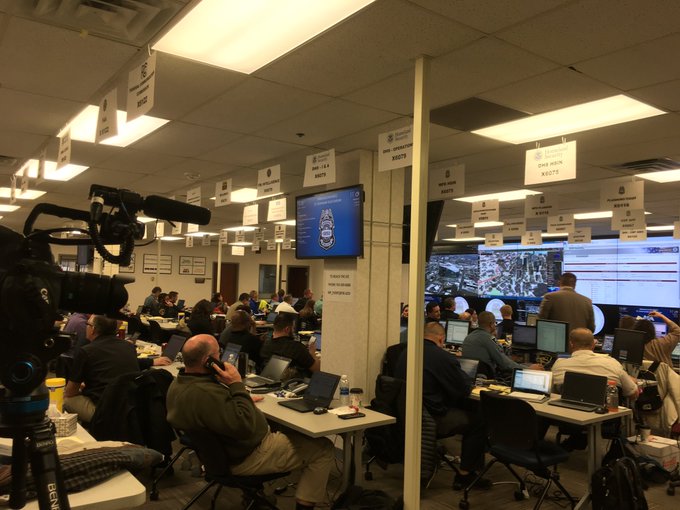
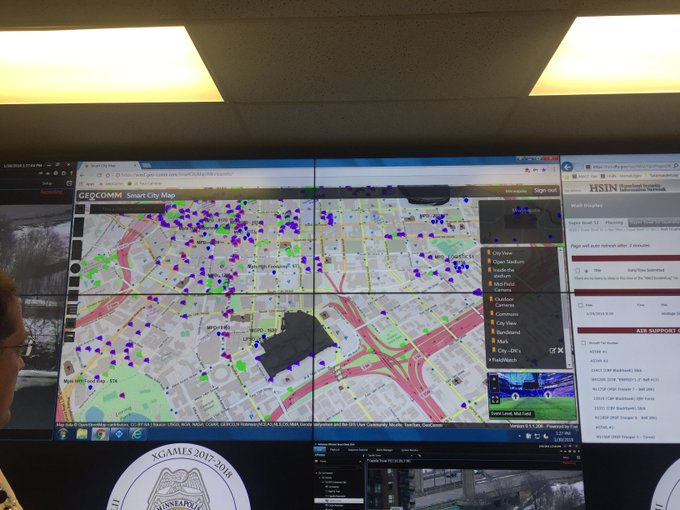
















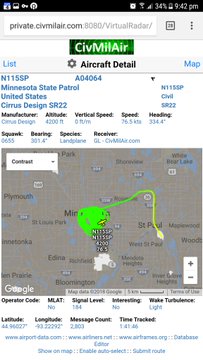
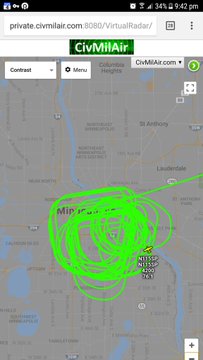

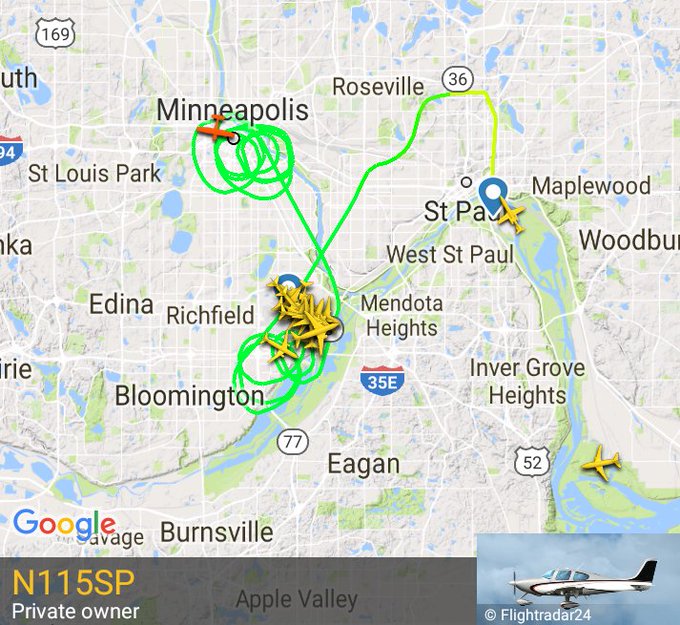







No comments:
Post a Comment
Note: only a member of this blog may post a comment.